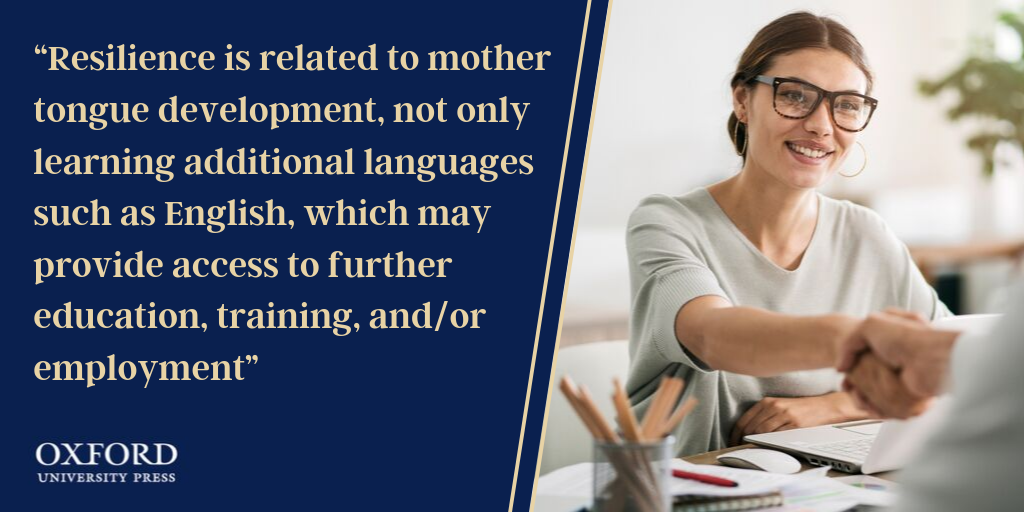 Resilience, the ability to bounce back from stress, is an important attribute for anyone facing a difficult situation. In English Language Teaching there is a focus on encouraging students to build their individual resilience to aide their learning and improve their mental health. There has also been an increasing focus on building resilience in communities that have fled conflict, and how language classrooms can be a safe space for learners to work through the effects of trauma.
Resilience, the ability to bounce back from stress, is an important attribute for anyone facing a difficult situation. In English Language Teaching there is a focus on encouraging students to build their individual resilience to aide their learning and improve their mental health. There has also been an increasing focus on building resilience in communities that have fled conflict, and how language classrooms can be a safe space for learners to work through the effects of trauma.
How does learning English support the resilience of an individual?
In ELT there has been a particular focus on building individual resilience, as education places more importance on learners’ mental health. Resilience of students, particularly from communities of migrants and refugees, can be built by combining personal development with the development of skills for employment. While acquiring age-appropriate levels of literacy and mastering a new language, it is essential to ensure that spoken and written forms of the mother tongue are also affirmed. This bilingual resilience-building model results in better academic performance, literacy rates and language learning, all of which enhance children’s likely success in education and future employment. Thus, success is related to developing the mother tongue as well as additional languages such as English.
How does a bilingual resilience-building model support communities that have fled conflict?
Opportunities to use home languages when learning English create inclusive learning environments less likely to marginalise children based on social, ethnic, or gender. In addition to benefiting academic performance and language development, these language programmes also foster inter-generational ethnic connections, increase family cohesion, and support cultural identities. This is achieved by helping English language learners bring home languages and cultures into the classroom.
Where can I learn more?
Below is an infographic from ELT Journals, outlining the role the ELT classroom plays in building personal and academic resilience. You can find the full article, including references, below:




RESILIENCE IS ONE WORD THAT I FORGOT ABOUT IN MY STUDENTS. I SEE LACK OF CONFIDENCE, WORK SCHEDULE CONFLICTS, CHILD CARE( THE INABILITY TO GET CHILD CARE), MOTIVATION, DESIRE, AND THEY FOUND THAT LEARNING ENGLISH IS NOT THAT EASY. I TRY TO MAKE LEARNING ENGLISH FUN, BUT I KNOW SOMETIME I MISS THE TARGET. I SEE IT IN THEIR FACES. I WOULD LIKE TO LEARN OTHER MOTIVATIONAL TECHNIQUES IN A WEBINAR…… PLEASE OFFER ONE……. THANK YOU FOR WHAT YOU DO…
AVIVAVILLA ESL TEACHER
Hi there, are you a member of our Oxford Teachers’ Club? It’s free to register! As a member, you can join our live webinars or watch recordings of ones you missed in our webinar library. For motivational techniques, try our recent webinar, by Nick Michelioudakis, called ‘More equal than others’. Hope this is helpful! ^Chesca
GREAT ARTICLE, In my country Mexico, there is also a campaing to preserve the original languages when learning ESOL as well, It is also important for students development to make comparisons between languages and reinfornce their self-core by feeling able to cope problems and find solutions in their lives and their inner strenght